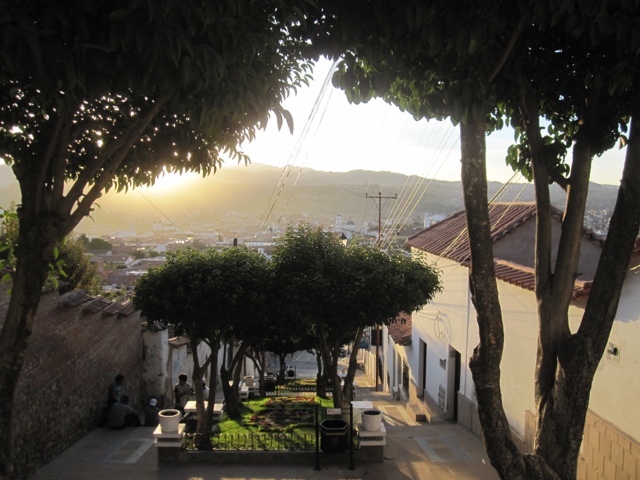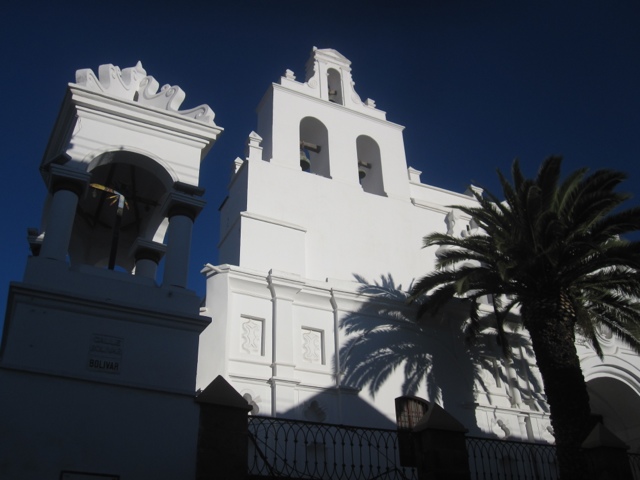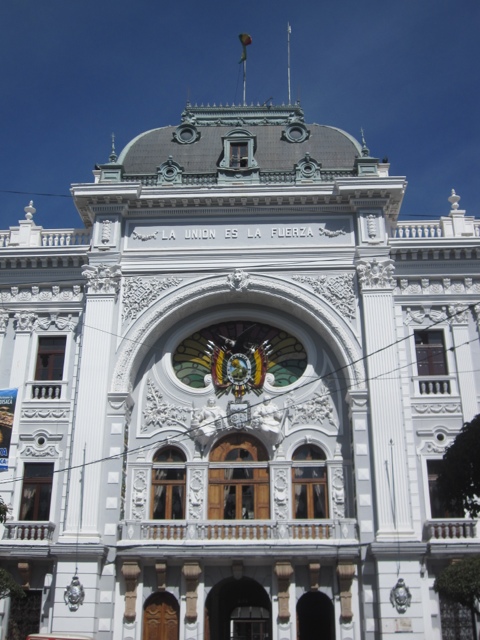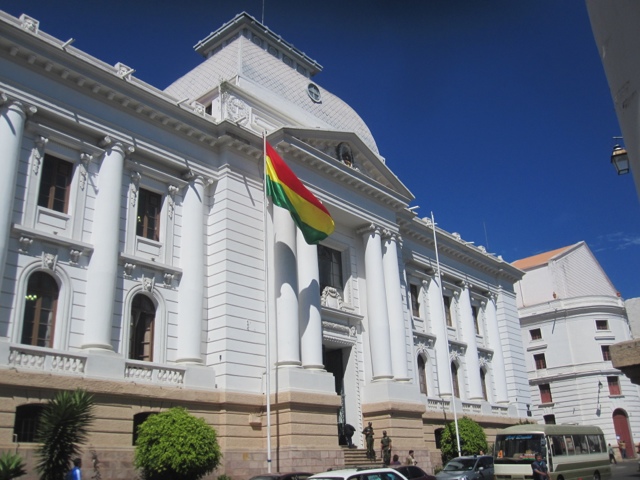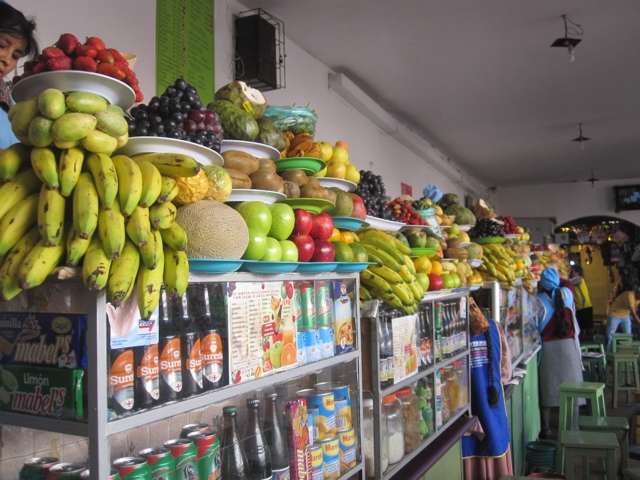We spent a great week in Sucre, the judicial capital of Bolivia (La Paz is the administrative capital). The sun was shining, the whitewashed buildings gleaming, and we took the opportunity provided by strikes and protests for a little downtime.
Bolivia’s no stranger to political protest, with a famously militant population frequently taking to the streets to demonstrate. As well as the fireworks and dynamite we experienced in Potosí, this often means roadblocks, making travel between cities impossible. Fortunately for us, we were happy to stay and sit it out! On one day, a bus workers’ strike meant the entire city centre was pedestrianised, as buses were used to block every intersection. Bliss!
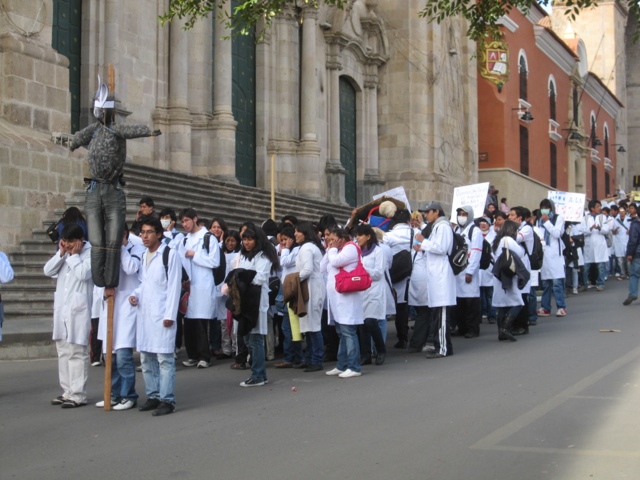
Medical students protesting. Note the effigies of Evo, and the people at the front bracing for the latest explosion!
Given the far-left impression back home of the President Evo Morales, you might be surprised to hear that he’s at loggerheads with the workers, but that’s certainly the case. It’s a bit hard to get a good understanding of exactly what people are protesting, but alongside the miners, the two other groups demonstrating are Medics and Bus Drivers. State-employed doctors are apparently opposing a new law which will require them to work eight hours a day instead of six for no additional pay; apparently most use the extra 2 hours at the moment for private practice to boost their incomes. I think doctors back home might be surprised to hear of even an 8 hour day! The bus drivers are apparently striking in solidarity with colleagues in La Paz, where – and I kid you not – new rules require local buses to follow prescribed routes, only let passengers on and off in the inside lane, and drivers to be banned if caught drink-driving. Welcome to Bolivia!
Sitting up in the sunshine at the viewpoint that overlooks the city, it’s not hard to see why with its attractive climate and beautiful buildings, Sucre is very much Bolivia’s official capital. Although its name doesn’t actually have anything to do with sugar (azúcar in Spanish), it certainly left us with a sweet taste!
Simon

